#divided nation
Text
Trump and Biden Rally in Georgia, for a Nation Divided
Trump and Biden Rally in Georgia, for a Nation Divided
DONATE: http://www.cash.app/$bugbumbing
In the bustling city of Atlanta, Georgia, the air was charged with anticipation as news spread that both former President Donald Trump and President Joe Biden were scheduled to hold rallies on the same day. The political landscape was ablaze with excitement and curiosity, as supporters and skeptics…
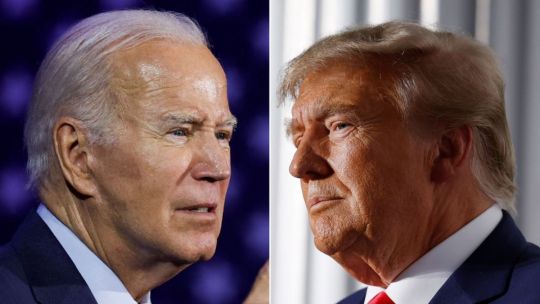
View On WordPress
#american democracy#atlanta events#AtlantaShowdown#biden rally#biden2024#BipartisanMoment#bipartisanship#divided nation#election 2024#ElectionLegacy#georgia politics#political unity#PoliticalUnity#trending#trump rally#trump2024#TrumpBidenRallies#united states leadership
0 notes
Text
New Post has been published on Books by Caroline Miller
New Post has been published on https://www.booksbycarolinemiller.com/musings/dont-be-afraid-of-the-dark/
Don't Be Afraid Of The Dark
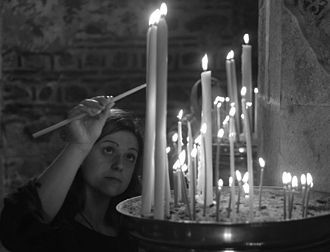
He was hunched against the retirement center’s brick wall, his figure illuminated by the light from a single bulb overhead. A hoodie covered most of his face, but by his crouched position, I knew he was young. He was probably one of the homeless in the area, though I’d not seen him before. As I headed to the elevator in my building, I stuffed money into the pocket of my windbreaker, hoping to reach him before a guard shooed him away. When I was close enough to see his face, he was, as I’d guessed, a boy in his mid-teens, an African American. Near enough for him to hear me, I asked if he was homeless. He nodded. “There are shelters,” I replied. He shook his head at the suggestion and, having worked with the homeless, I knew why. Shelters could be dangerous places. Hunkering down to sleep under the dense shrubbery of a park is sometimes safer. We continued to talk for another minute before I handed him the money stowed in my pocket. He accepted it with a nod, then stuffed the bills into his wallet. From a corner of my eye, I saw a young woman headed toward us. Her heels sounded like a crisp tattoo on the pavement. It seemed as if she meant to give me fair warning. If I intended to roust her friend from where he was crouching, she had an objection. As she drew near, I asked if she was homeless, too. My tone was mollifying, so I was grateful to see her shoulders drop to a relaxed position. She shook her head in answer to my question, time enough for me to note she was long-limbed and that her cap of dark hair framed a pale face with even features. The pair weren’t related, but by her demeanor, I sensed she took a proprietary interest in the boy. The three of us talked a few moments longer, then, satisfied the youth was in safe hands, I said goodnight. As I walked away, I thought of the man in the fedora hat. “I’ve kept my word,” I said to the darkness. Many share my concern for the homeless. Walking through my neighborhood, I sometimes see young people assisting them by offering a blanket or an item of warm clothing. What the local authorities think about street charity, I don’t know. Regulations can be surprising. In my city, an ordinance exists that fines individuals of goodwill who drop coins into the slots of lapsed parking meters. Why should a kind impulse be punished, I wonder. I queried a woman on Facebook about her work with the homeless. Was she part of an organization? “No,” she replied. “I’m solo. I love Portland‘s generosity and the consistency of many volunteers. They have such heart.” She directed me to a website called Hot Soup as an example. Following the thread, I learned a network of ad hoc volunteers existed throughout the community. Not long ago, a band of them sued the city to prevent their charitable efforts from being shut down. Having served in public office, I’m not one to see government as the enemy. Democracy isn’t an efficient system, I admit. Tyrannies do better at bending people to their will. Even so, I sometimes feel, the public takes the work of government for granted, often criticizing, seldom praising. On the national level, I despair that people fail to see the obstacles President Joe Biden and his cabinet have removed in efforts to improve the conditions of ordinary people. Donald Trump gave tax cuts to the rich and forced individuals to fend for themselves during the pandemic. Governments are either good or bad depending upon the wisdom of the citizens who vote. We sometimes forget we are a part of the formula. To blame the government is to point an accusing finger at ourselves. At the moment, the country can’t agree on the correct questions let alone agree on the answers. Confusion is understandable. We face uncertain times: the economic fallout of a global pandemic, famine, and conflict abroad. But when we focus on personal demands, we distort the national character. Democracy aims to lift all boats. We were united on that principle once. As pioneers, we built a nation one barn-raising at a time. After World War 11, we helped Europe stand on its feet again. Our defense of Ukraine is a remnant of that spirit. The young people I see patrolling the streets in my city, intent upon taking personal responsibility for the fate of others, also reflect American values. I honor those volunteers. They remind us of a single candle’s power. If one taper can dispel a shadow, a second and a third will dispel more. What is darkness, after all, but a space waiting for light?
#American values#democracy lifts all boats#divided nation#Donald Trump#homeless shelters can be dangerous#homelessness#Hot Soup#how people relate to government#Joe Biden achievements#politics of the time#the man in the fedora hat#the power of community#Ukraine#volunteers without organizations#World War 11
0 notes
Text

me and my friends monthly tradition of watching disventure camp and having a heated 20 minute discussion afterwards
#disventure camp#the show is like. its. ok its the best enjoyed in a discord call with friends and you all decide to stan a random character#doesnt matter what they do just hype them up or hate them#we're a divided nation of karol haters and enjoyers
936 notes
·
View notes
Text
The Nature-Culture Divide
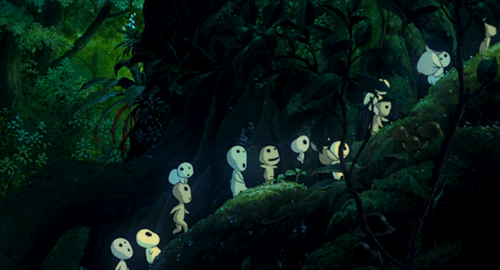
Something I have seen a lot of people within the Solarpunk sphere talk about and wonder is: "When did we stop seeing ourself as something outside of nature?" And given that I actually had a module on that (Social Geography, best module I ever had, given we had an anarchist professor!) I thought I could quickly explain this one.
So, the names come, in the end, from Latin and back when those words were considered in Latin, the difference was, that nature was a thing that was innate, while culture had volition behind it. You could change nature into culture by putting work into it.
Something that might surprise you is, that the idea of nature then was never quite big for most of European history. And let me make one thing clear: While we have these ideas also played with in Buddhist culture - especially in East Asia - the way we define it right now is a Western idea.
And that idea... Well, that idea came with colonialism. The thing many do not realize is, how much of the rules and "lines in the sand" that we use in our culture came from colonialisation, came from the desire to make "our" culture different from "theirs". It is shown in the way we eat, in the way we raise children, in the way we view gender and sexuality. And, yes, in the artificial border between nature and culture.
Before I tell you more about this, let me please say here: Yes, this is contradictive. I am aware of it. I am not the one who came up with the contradiction. White settlers did that all on their own.
When the settlers came to America they found a landscape very, very different from what they were used to from Europe. After all, Europe has been changed through human hand for at that point about 1600 years. (And for you Europeans out there: Researching how much forest your local area might have lost through the Romans is always a "fun" thing to do! Because the Romans destroyed a lot of European ancient forests.) In Europe, even at the wildest places, there was usually some evidence of human habitation - but this was not true for the Americas. Not because there were no people there, but rather because the people interacted with the environment very differently.
See, the European idea - while never quite that defined until this point - was really, really based on this thought that nature can be turned into culture. And that this transformation was in fact a good thing to happen. So, when the settlers arrived in the Americas they did not see "culture" there, only "nature" and set out to turn that "nature" into "culture".
Of course, we - modern people living today - do realize that indigenous people had in fact cultures of all sorts and that the actual difference was, that they just did not see that culture as something different from nature, rather than a part of it. Because their culture had not been influenced by Romans. But the settlers back then did not see this or rather did not want to see this. So they "cultured" the land, with the ideas about nature and culture being further formalized at that point.
It kinda stayed like this until the late 19th century, when Madison Grant, the originator of eco fascism came to be influencial. And now he saw something that the settlers until this point were unable to see: The indigenous people do stuff with the nature around them! They change it! For example through controlled burning of forests and things like that.
And this made Madison Grant very angry, because he was very much off the opinion that nature should be "unsoiled" by human hands. So... he made sure that those indigenous people got once more pushed out of the areas they were living, with the same areas being declared natural parks and no longer interfered with by humans (except, of course, all the tourists who destroyed it bit by bit). Leading... To a lot more wild fires.
So, where does this leave us in terms of the culture/nature divide?
Well, the idea has been there since ancient Rome and has very much influenced how much we view nature as its own thing. But within Rome nature was still not quite seen as the opposite of culture - as one could turn into the other. Under the Roman view an abandoned house or a field that was no longer cared for would turn back into nature, while anything could become culture just by interacting with humans.
The modern view really came through colonialism and the way colonialist did not understand (and did not want to understand) indigenous practices. This made people more and more drift towards the understanding of humans being an entirely different thing from nature.
But this is wrong, of course. We are part of nature. We are just animals with fingers and slightly larger brains. And many indigenous cultures understood this. In the end it was the greed of some that made us loose this connection to nature. And that is exactly why we are in this climate change related mess right now.

#solarpunk#history#culture#nature#culture-nature divide#colonialism#anti colonialism#indigenous knowledge#indigenous people#national parks
170 notes
·
View notes
Text
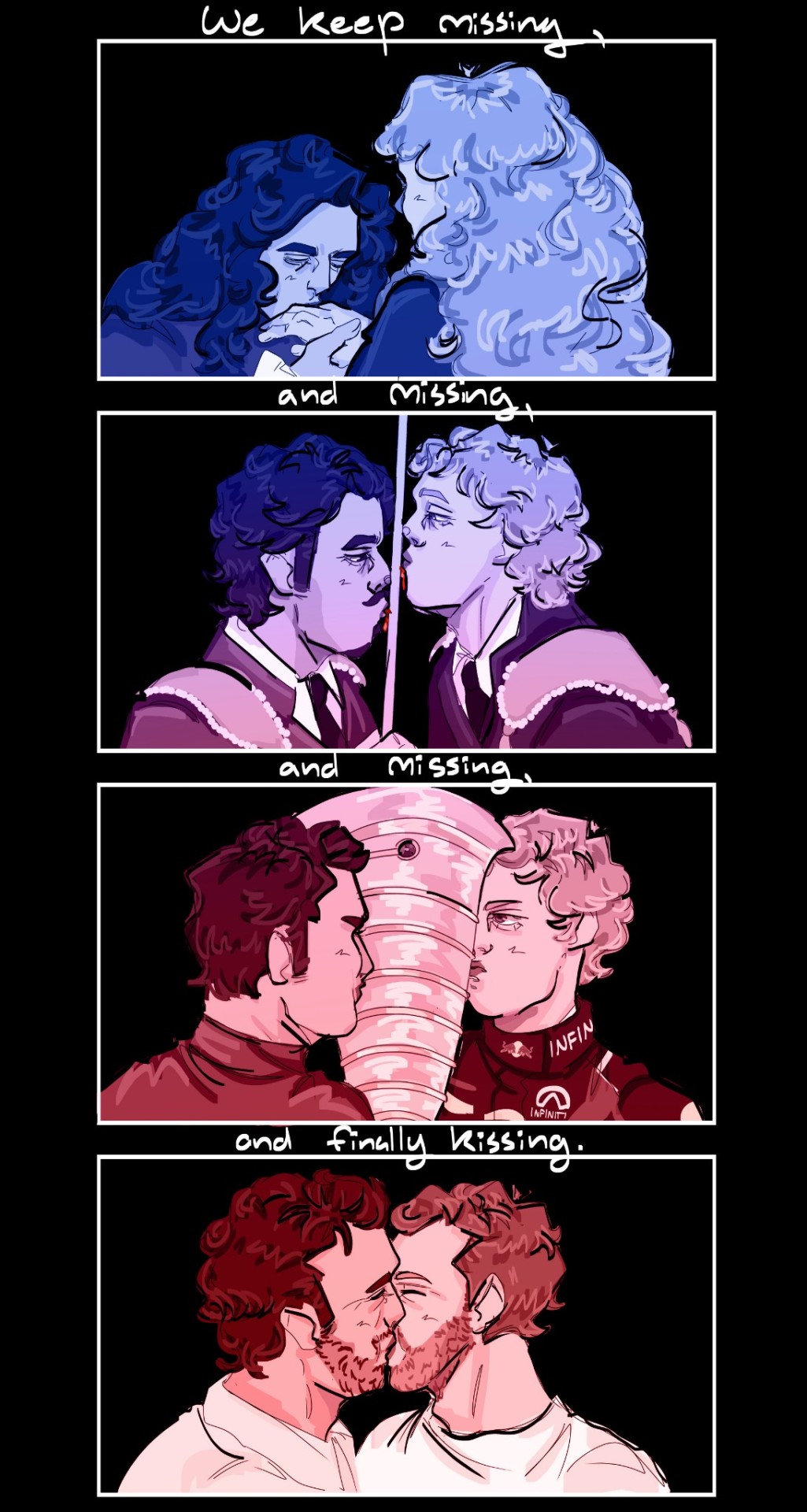
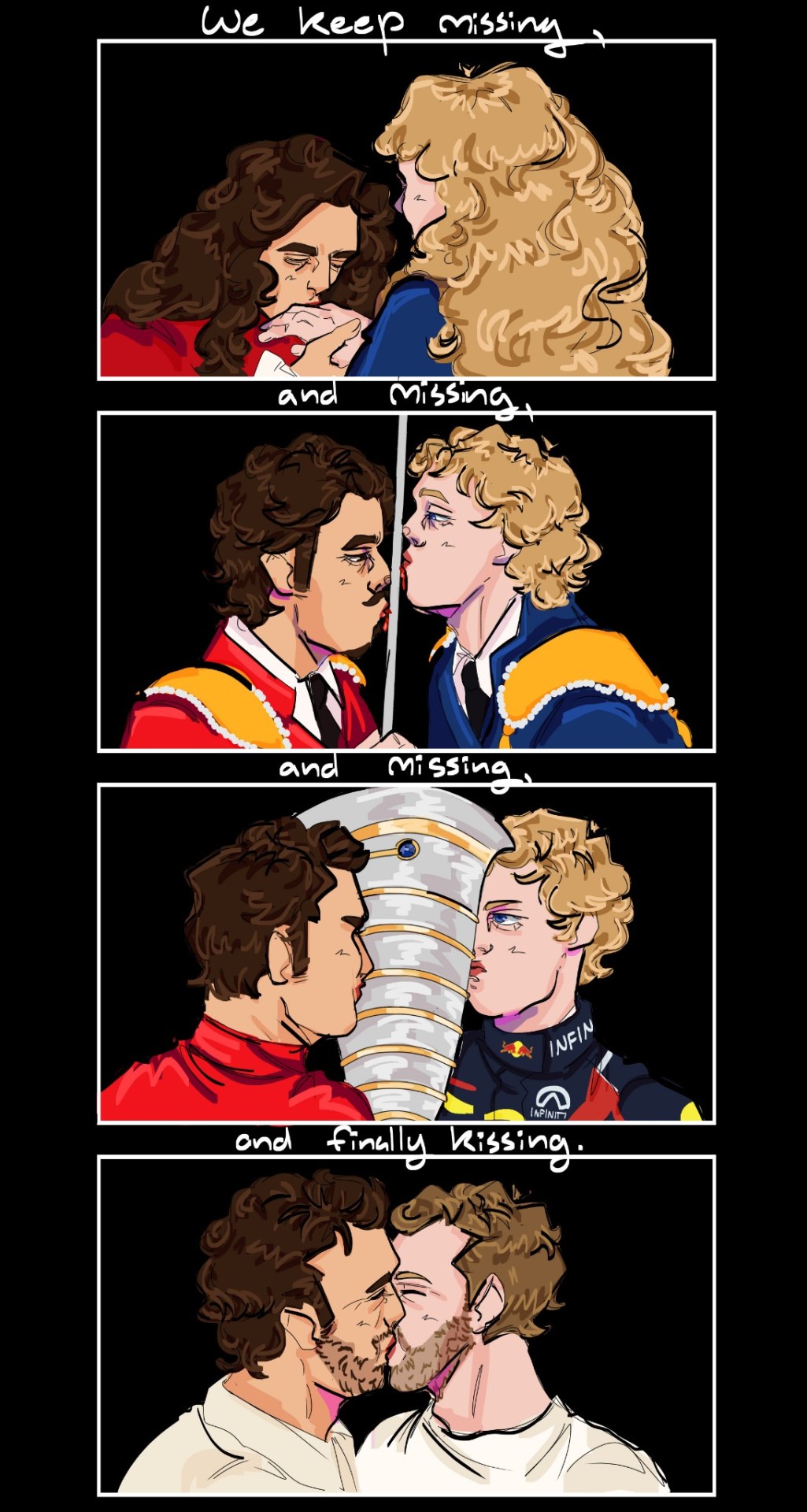
Happy 5/14!!!!
Aaaaahh not sure if this is my best work 😭 I just really wanted to draw smth for vettonso day but my brain hasn't really been functioning well LOL so I kept dreading working on this, especially bcs its so important to me, y'know? I hope it's good????? I'm happy with the concept, but I was just so unsure on so many of the angles and it was killing me. I did the color thing bcs I thought it'd add something interesting to it :) since I didn't paint it as I usually would
Anyways! Process!
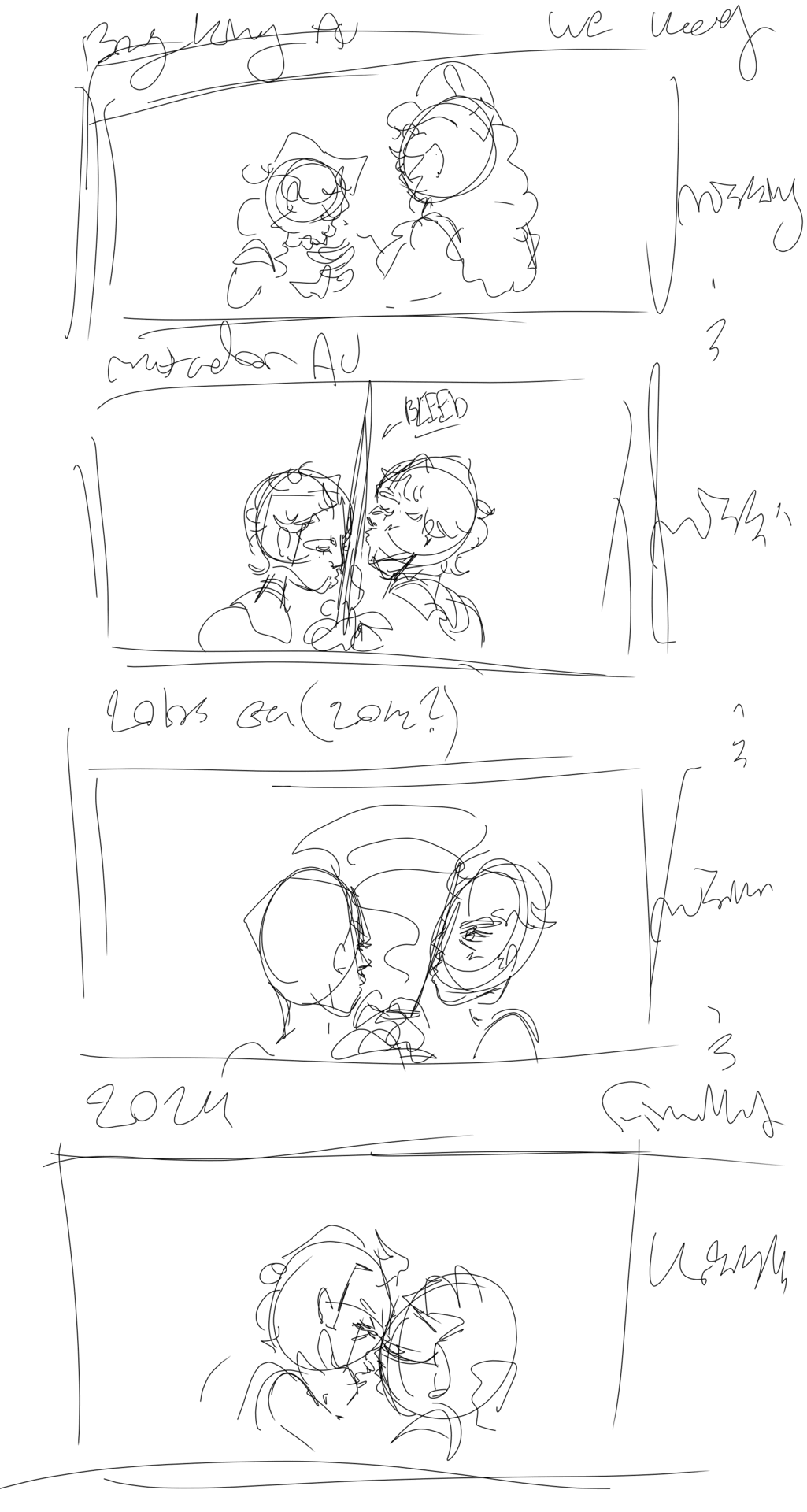
Now I will explain all of them:
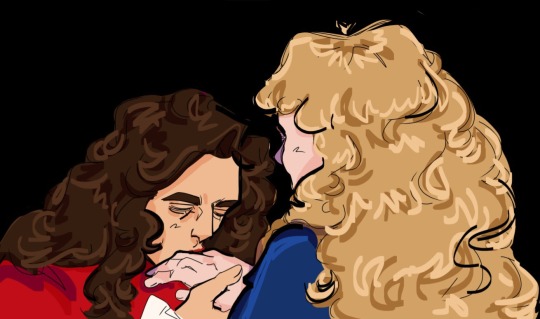
Boy king au is where it all starts of course. I think their relationship is the most developed in this compared to the others, but at the same point, they just start from such a different point, especially affection-wise. All of these kinda have a power dynamic, except the last one, and this is the most imbalanced. Fernando is being subservient, the only part of Seb he may kiss(in public lol) is his hand.
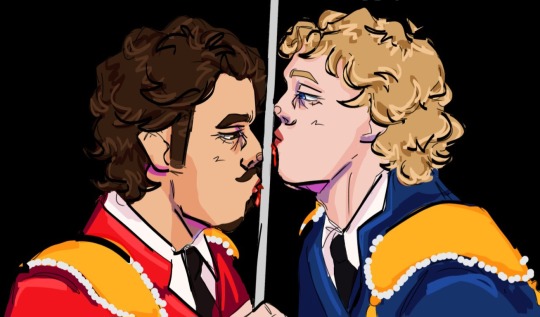
Matador au next. They hurt themselves when they try to be affectionate, because they live in the culture of a sport of violence and death. The sword separates them, their love for the sport keeps them apart, in fear that they hurt each other. Seb, yet again, looks down upon Fernando. Seb haunts Fernando's whole career, the constant overhanging presence. Also aside from that, shame that you can't see his three musketeers look bcs of the black background 😔
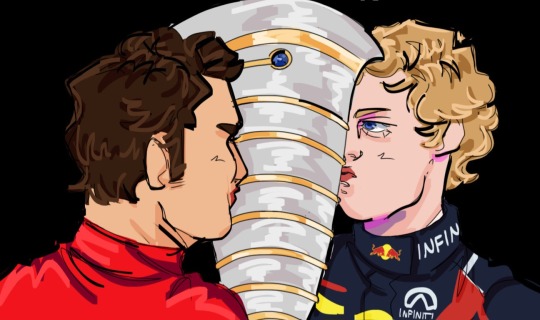
2012 core!!! I think this one is pretty easy to understand. Both of them often kiss their trophies, more so than any driver. So they're both trying to claim the wdc trophy by kissing it. Maybe you guys should just get rid of the trophy altogether and claim each other! But yes, just like the sword in the matador au one, the trophy and their ambitions divides, keeps them from ever bridging the vast gap between them, at least at that point in time.

The conclusion! Aka what I wish we will get at Imola 2024- kidding kidding. But it is 2024. Finally there is no conflict between them, there's no big thing keeping them in conflict, they can finally come together. Finally they can touch, there is no gap to bridge, they can appreciate each other, and appreciate what they failed to in years past.
The thesis is basically that they always have their aspirations between them, and their aspirations happen to be basically the same thing. Until those are resolved, the gap between them is too vast for them to recognize and/or find any commonality. How do you get along with someone when you're both fighting for the same thing? How do you get along when it feels like one of you is winning more? How do you get along when there's such a vast gap?
In boy king au, it's going to take a while before they both feel settled about the issue of the throne. That's what makes that au interesting, they're trapped in this state of non-closure and they have to actually solve their issues without the matter of one of them simply removing themselves from the equation. They have to find a way to get over themselves and their aspirations, because like it or not they're stuck with each other. I think with the hand kissing, it represents how Fernando, at that point, is only willing to play along with the game if it's tradition, and he often won't budge in other ways. Yes, I will show subservience, but only in this detached, formal way that I don't connect personally to. He's still holding his own bitterness over meaningfully appreciating Seb. Though it's not like Seb isn't at fault. It takes a while for him to not hold things over Fernando, and constantly humiliate him. One day they will meaningfully show affection, and it won't be some sort of power play.
I think matador au is pretty similar to real life, and the 2010s era(it's basically just their actual plot line but in the context of bullfighting.) They're forever going to have this big elephant in the room, and it only really gets resolved when one of them leaves the sport. Once they're not fighting directly against each other, they realize what they've been missing out on and what they were not appreciating for so many years beforehand. They finally come together because they can't just rely anymore on the sport keeping them together. They actually have to make that step to be in each other's lives, rather than just taking their presence for granted.
Also the text on the comic. "We keep missing, and missing, and missing, and finally kissing." It's basically: we keep missing the point of it all, we keep failing to appreciate each other presence in our lives and in our own individual grand stories. But when we're not forced together anymore, we have to make the choice to come together again ourselves. We keep missing what we actually need to do. Missing each other in favor of our aspirations. Etc etc. One day we will finally embrace and there will be nothing keeping us apart.
#hahaha im more proud of what i wrote under the cut so make sure to read that!#im happy w the concept but the art hurt my brain so its not my best work i dont think#i also never draw kissing#so please take my token of actual shippy affection for once#VETTONSO DAY!!!!!!!!!! AAAAHH#man im glad i realized that last wk bcs i think i wouldve never recovered if i didnt draw smth for it#tho thsts why i think i kinda dont like this drawing 😭#the process was rly stressful to me bcs im like I HAVE TO FINISH THIS#its my national holiday and i must pay my dues 🤧🤧#but im happy abt the plotline of this all :)#sigh. when will vettonso truly stop missing and actually start kissing#i rly hope 005's art and mine works as some sort of sacrifice so we get pics of them together from imola#like PLEASE guys if theres literally one thing you could do for me. it would make my year. genuinely#i just need that shock again of japan 23. just the completely unexpected pictures#cmon lets have a meetup of aston failboys as they look upon the amr24 and commiserate#^ see exactly the point of this art. they have this bridging them together.#conflict that keeps them together and that they can relate to rather than dividing them#conflict is not man vs man anymore. it's man vs car 😔#f1#formula 1#sebastian vettel#fernando alonso#vettonso#catie.art.#catie.rambling.txt
48 notes
·
View notes
Text

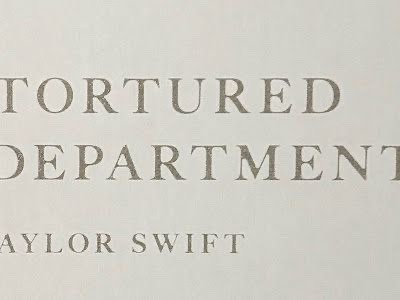

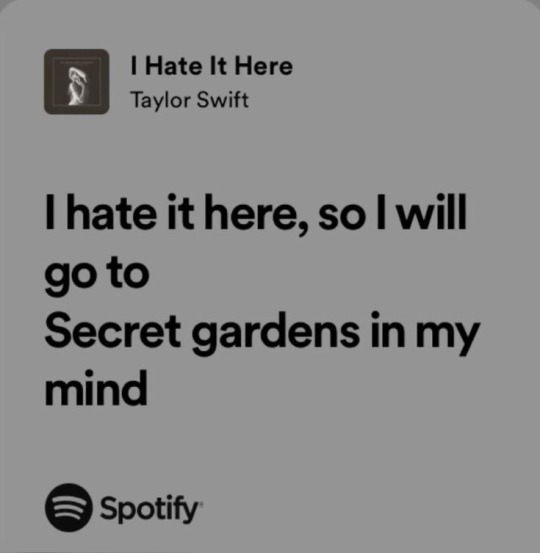
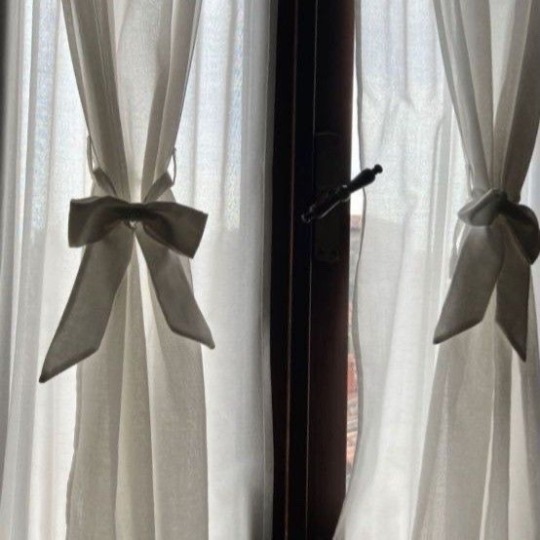
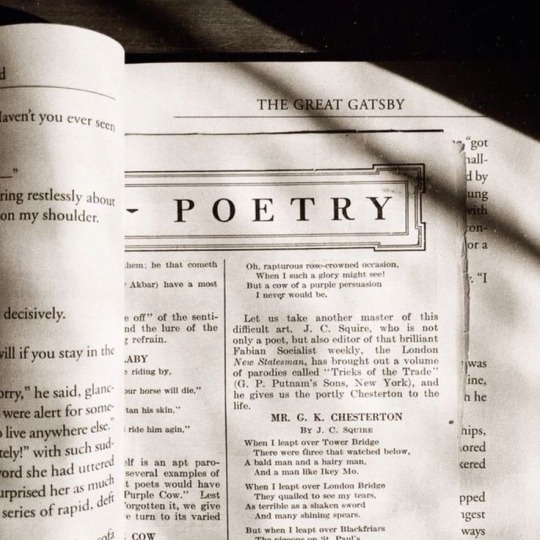

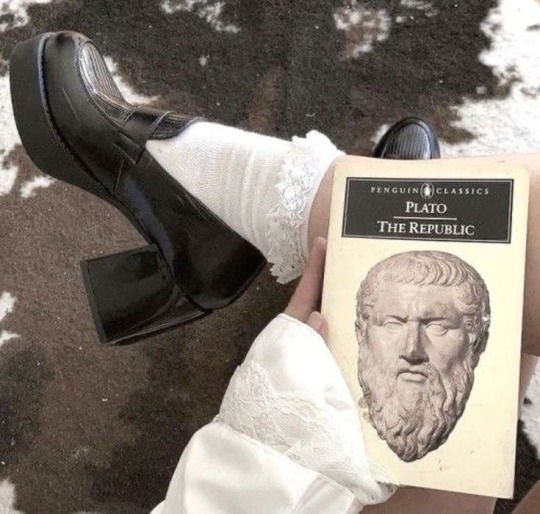

𝜗℘ I will go to lunar valleys in my mind
#taylor swift#the tortured poets department#ttpd moodboard#ttpd eras tour#the anthology#moodboard#the eras tour#taylor’s version#ttpd#messy moodboard#divider not mine#kpop moodboard#tswiftgif#tstheerastour#travis kelce#taylor swift moodboard#icons#taylor nation#ts ttpd#dead poets society#taylor swift fortnight#taylor swift header#messy layouts#taylor icons#taylor swift pfp#gray moodboard#reputation taylor’s version#taylor swift eras#lover taylor swift#taylor swift aesthetic
31 notes
·
View notes
Text

Have a nice holidays everyone! 💚🎄
#I spent almost 5minutes to this but now my finnish soul is free#Missed my chanse to lign up the scar with the seam tho damn#zoro#one piece#vihreät kuulat#it’s an obligatory meme for us finns#these marmelades divide the nation#happy holidays#to all who celebrate#I’ll be working until 27th hhhhhhh#no rest for the flower slaves#brought to you by the thought of zoro gifting these to sanji#zoros balls in sanjis mouth joke here#is it zosan if it’s only in the tag ted talk#it is now#zosan
54 notes
·
View notes
Text
You really have to appreciate Momo's parents though
Son wants to be a pro soccer player: oh yeah absolutely, totally supportive! You've got this Momo!
Son wants to be an idol: don't be so unrealistic, you'll never succeed as an entertainer! It's impossible for you!
#to their credit he did at least have several (?) national championships under his belt#so like they did have some reason to believe he could succeed as a soccer player#and he had absolutely no experience with singing or dancing#but the divide is funny to me#more proof that Momo walked straight out of a sports anime into an idol one instead#idolish7#i7#momose sunohara#~k
25 notes
·
View notes
Text
Ecologies of Imperialism in Algeria, by Brock Cutler, begins with an account of food poisoning in nineteenth-century French Algeria. A deep rural crisis of drought and famine in the late 1860s had reduced the amount of fuelwood coming into the city of Algiers, leading one baker to use construction debris shipped to the colony from Paris to fire his bread oven in early 1869. The lead paint on that metropolitan rubble, product of Baron Haussmann’s transformation of the French capital, became a toxic element in the bread that sickened settlers in the colony. The author [...] treats this small episode as a microcosm of the divides, the unruly circulations, and the nonhuman actants and processes that characterized the early decades of colonial rule in Algeria, which the French invaded in 1830.
These divisions and circulations include those between metropole and colony, between modern and not modern, between person and environment, between human and nonhuman, and across the colonial frontier with Tunisia. [...]
---
The first [of three major narrative veins in Cutler's study involves] [...] bread [...], the consumption of wheat grown on the Mediterranean plains of Algeria [...]. The toxic bread affair of 1869, however, was a reminder that the distance between metropole and colony was not so great. [...] The second vein examines the production of new ecosystem relations [...]. [T]he violence of decades of uneven conquest and the confiscation, appropriation, and enclosure of land and its reorientation toward regional and international [European] markets between 1830 and 1870 thoroughly destabilized rural Algerian life. This fragility turned lethal in the final years of the 1860s, when a series of environmental crises - locust plagues and drought - caused widespread famine and ultimately the deaths of up to eight hundred thousand Algerians. [...] The emptied land and cheap labor that were outcomes of the environmental crises enabled [France] to complete the capitalist transformation of rural Algeria [...]. Another outcome of the environmental crisis was an increase in the number of rural Algerians migrating to cities, where they were perceived as both a threat to public order and a reservoir of potential labor energy. [...]
[D]ivisionary logics, including the line between city and countryside and the modern gendered subject, were being performed, produced, and reproduced in the context of environmental crisis.
---
[Another] major element [in Cutler's scholarship] [...] is an exploration of the complex politics of policing French Algeria’s eastern border with Tunisia, in the era before French colonial rule began in the latter polity in 1881. [...] [T]his border, officially demarcated in 1846, was only integrated into local ecosystem relations over the course of subsequent decades. Repeated performance of sovereignty through patrols and taxation of pastoral communities that lived and worked in the frontier commons instantiated the border, but the border region remained resistant to the forms of modern statecraft, such as standardization, bureaucratization, and written transactions, that French authorities preferred. [...] [Cutler] draws on intentionally “mundane” examples to show how they were critical to the steady reproduction of a modern imperial border (p. 47). [...] [A specific] episode of transborder [dispute] [...] in 1869 [...] became a referndum within the settler community on the virtues of military rule and a reminder for that [European] community of [supposed] indigenous incompatability with modernity. [...]
[T]he various divisions illuminated by the story - between modern and not, between inside and outside, and between European and Algerian - were performances staged at various times and places, not eternal features of the society or landscape. The repetition of “divisionary logics,” in the author’s telling, were at the heart of French colonial modernity (p. 149). [...]
---
[T]horough reading of the French colonial archive, from official sources as well as memoirs, newspapers, and periodicals [...], [t]he first two narrative threads, on bread and disaster, demonstrate the significance of moments of crisis [...] in actually changing the course of history [...] [and] longer-term [...] ecological transformations. The other thread, however, examines how the mundane performance of modern sovereign power and its divisionary logics, over time, made real or even naturalized the new imperial frontier between Algeria and Tunisia. Both [...] society-wide crises or the steady performance of the mundane logics of power [...].
---
All text above by: Jackson Perry. "Review of Cutler, Brock. Ecologies of Imperialism in Algeria". H-Environment, H-Net Reviews. April 2024. Published online at: h-net.org/reviews/showrev.php?id=59842. [Text within brackets added by me for clarity. Bold emphasis and some paragraph breaks/contractions added by me.]
#on here ive previously shared and recommended article excerpts from cutler on borders frontiers and performance of power#he has cited some interesting examples of french official correspondence plotting to cut down forest and enclose land#while officials were explicitly discussing the importance of repetition and performance to slowly naturalize national borders#so that they could introduce idea of property and establish monopoly on force to justify their resource extraction#he cites many sources and if youre into frontiers borderlands etc check out his articles maybe#bunch of fascinating little anecdotes and stories about french officers and also local algerian disobedience and subversion#ruralurban divide and gender performance that subjects had to partake in to remain either legible or illegibile to french#ecology#abolition#landscape#multispecies#imperial#temporal
21 notes
·
View notes
Text
this essay is going to be absolutely genius if I'm not talking rubbish
#girl either I'm having an epiphany or I'm stupid and I cannot articulate my epiphany clearly enough to know!#basically right ok the concept of authenticity#basically it's divided into two ideas - we perform authenticity relationally and then authenticity itself#which is what we're performing#but what if. the performance of authenticity were all there were. there's nothing behind it. ONLY the performance#performance is what CREATES the authentic! and as such the authentic is not a seperate concept from it!#I'm writing about food specifically Korean food but generally food and authenticity#thinking about pasta not being part of the italian national identity until immigration in the 19th century thinking about kimchi not being#fermented until the 16th century and the chili used in it not being native to Korea#like???#but I may be Literally Insane who knows
31 notes
·
View notes
Text
It’s not a Team Avatar without a fire nation/firebender companion housing the group’s braincell, has an explosive temper and also the most stressed.
#Yangchen is probably that firebender in her group but I could be mistaken don’t come for me I haven’t read her books yet#I guess for Korra’s team it’s divided between Asami who has the braincell and mako with the explosive temper#Asami has fire nation heritage she counts#correct me if I’m wrong#avatar the legend of korra#avatar the last airbender#the shadow of kyoshi#rise of kyoshi#avatar korra#avatar kyoshi#avatar aang
9 notes
·
View notes
Text
On words and contexts
Dear US friends,
I hope all of you already know this; but just in case any of you don’t...
It’s possible over the next few days and weeks (& maybe longer), in the aftermath of the Queen dying, that you may see some UK friends online saying they are republicans.
If you are a liberal-leaning US democrat, that might be a bit of a shock. They’re your friends, right? - and have always seemed like decent compassionate people who believe in >insert pretty much any important human rights/environment etc issue here<. So WTF?
Please remember that here in the UK, republican means pretty much the exact opposite of what it means in your country. British republicanism is a very different beast to the US sort. It’s liberal, democratic, compassionate, in favour of the separation of religion and state, and in the main, very left-wing.
But it’s not in favour of the monarchy.
British republicans want an elected head of state instead of a monarch. Lots of them want other political changes as well, like a written constitution, more fair electoral systems, police reform, better protection of minority rights, apologies and reparations for the actions of the British empire, etc. The dream of the abolition of the monarchy is just, well, kind of on their minds at the moment.
#UK republicanism#versus US version#blimey#talk about Two nations divided by a common language eh?!?
320 notes
·
View notes
Text
#fallout#fallout new vegas#fredrick sinclair#sierra madre#dead money#begin again#salt upon wounds#white legs#zion national park#the think tank#doctor borous#doctor dala#doctor 0#8#doctor klein#old world blues#honest hearts#the divide#marked men#lonesome road
11 notes
·
View notes
Text

4.2 spoilers
once again we have another nation that's in the unique position of losing their ruling archon. and i am starving for some further exploration of the ramifications of what it's like for a people to realize "there is no god".
and while i'm glad neuvillette is there to assume leadership of the nation as he was functionally running fontaine, i feel this is a little too easy for the writers. 'let's get rid of an archon, but also replace that archon with essentially another deity'.
i want to see people question neuvillette's leadership, i want to see what kind of struggles neuvillette would have to go through in order to reassure the population after near total annihilation. since while neuvillette can handle all of the duties of an archon, fontaine is such a particular nation in how much adoration they put into showmanship and charisma, and in that does he fail so very, very hard. so i would love to see him being rejected in turn.
and most importantly to me, i just want to see what sort of reforms neuvillette would make in the wake of all this change. i would love to believe that he would completely overhaul the court to something more like how it's handled in our real world rather than making it into something of a spectacle as it's always felt somewhat tacky, but that's such a precarious decision to make as the people of fontaine love their theatre. i want to see how elevate certain individuals into the places of power they deserve (basically navia deserves so much more respect in fontaine).
just give me. that. because i am boring as i eat this stuff up.
#❛ㅤ⚜ㅤㅤㅤ✦ㅤ:ㅤwords surge and releaseㅤㅤ◟ㅤstudyㅤ◝#❛ㅤ⚜ㅤㅤㅤ✦ㅤ:ㅤfrom the depthsㅤㅤ◟ㅤoocㅤ◝#4.2 spoilers#genshin spoilers#real fear is that they sweep this all under the rug#as we've still yet to deal with the real class divide in fontaine#or have had any character touch on why fontaine is so messed up compared to the rest of the nations
10 notes
·
View notes
Note
Bobo and/or Espresso?
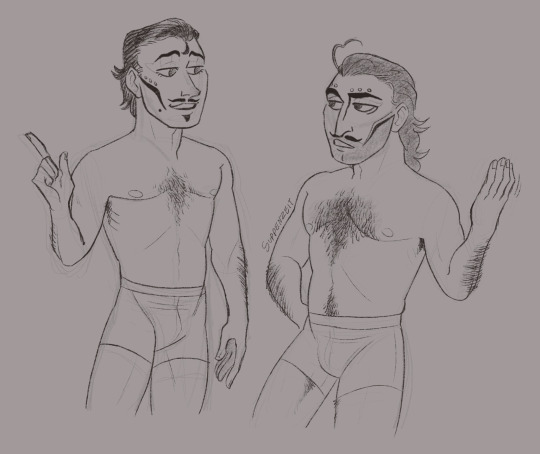
Bobo is best described as svelte, he's thin but muscular. Is built like a ballerino (or a bicyclist), so his legs are noticeably thick and muscular.
Espresso is full bodied, muscular but not ripped. Takes very good care of himself, though he will never give up olive oil.
#askbox#anonymous#stex#stex requests#nationals are divided into three height categories for me: tall medium small#bobo is in the tall group. spressy is in the medium group#nationals to me have pretty little height variation (excluding brex. who is Short)
6 notes
·
View notes
Text
the way the ocean in aot is the main (and most innocent) symbol of freedom while the paths (ymir created as an escape with no pain or death) is just an endless desert.
#though i suppose also the ocean divides nations#also it’s vast and unknowable#so it makes sense…#aot#attack on titan
11 notes
·
View notes